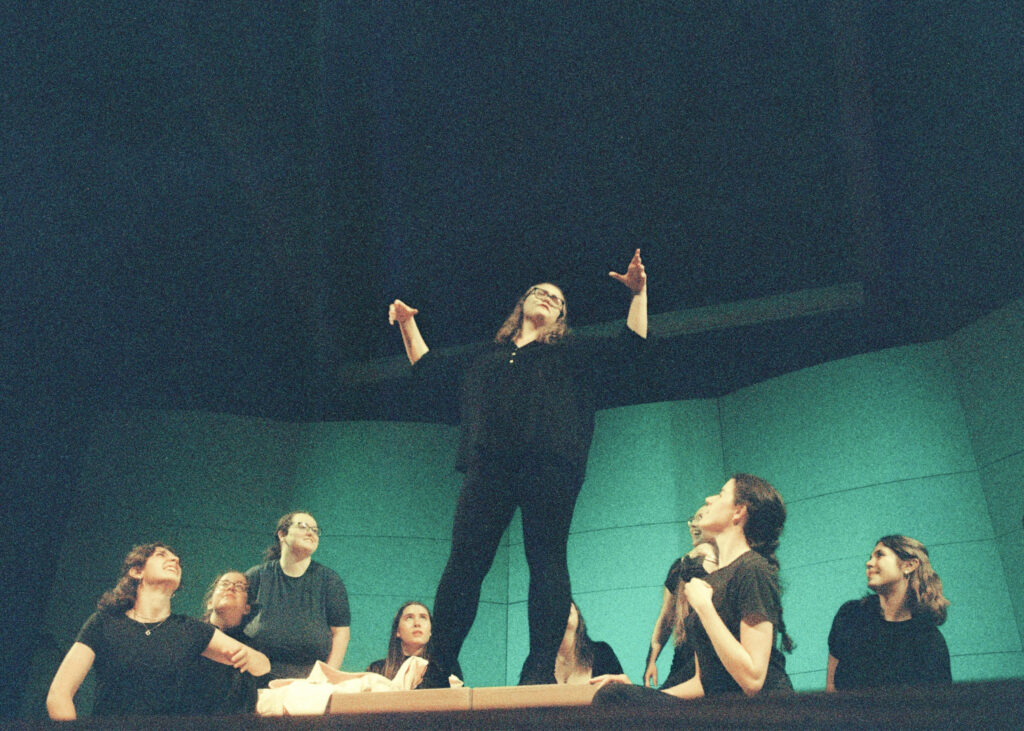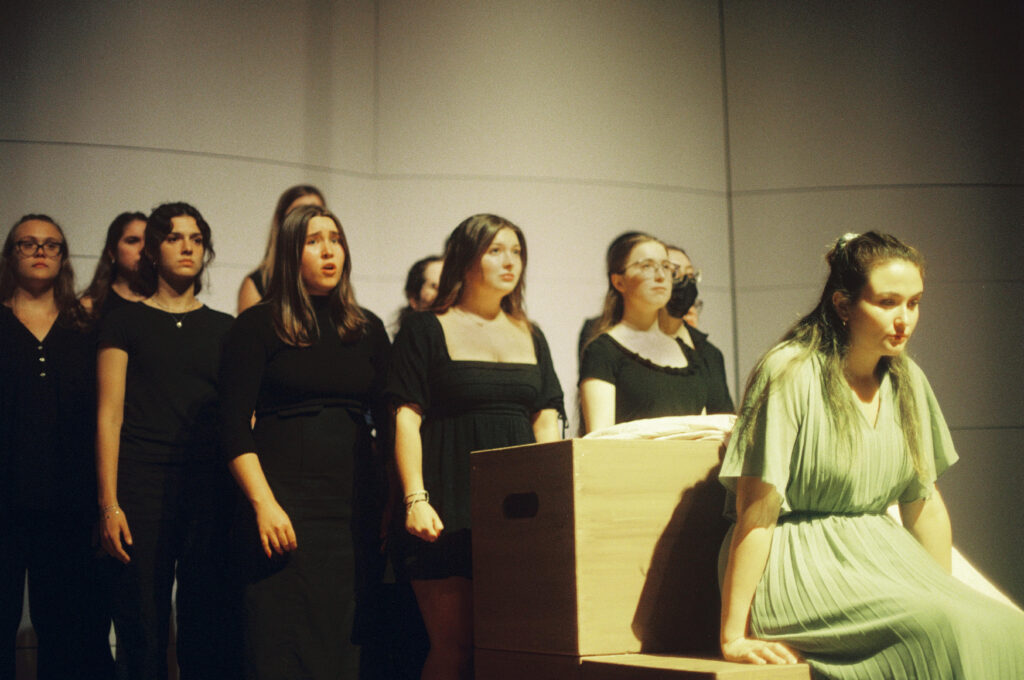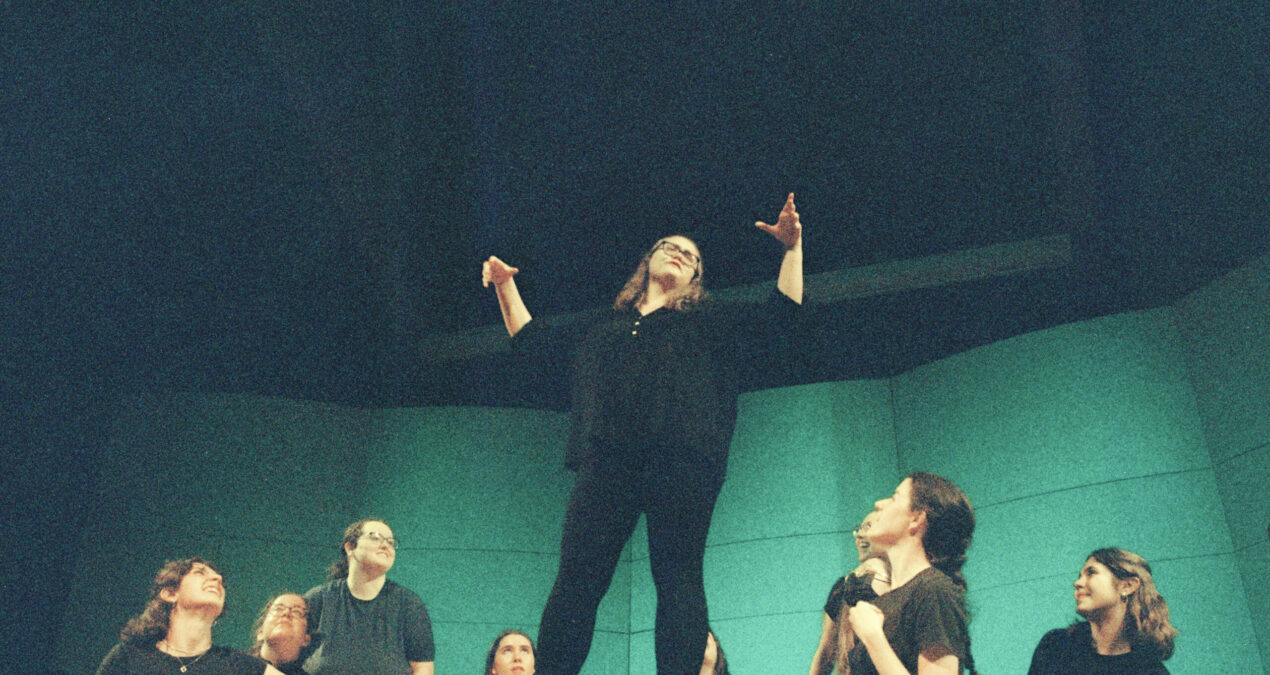Nor Osborne, Features Editor–
The lights have just dimmed in Burke Recital Hall, prompting excited murmurs from Denison students, faculty, and family members. Audience members look around in anticipation, before falling silent as members of Denison’s newest ensemble bound onto the stage. They stifle excited grins as they walk to their marks. After eight weeks of hard work, they’re finally ready to perform. It’s Oct. 27, and the first performance of the brand new opera ensemble has just begun.
At the back of the hall, Professor Emily Noël stands eagerly, wringing her hands and silently mouthing the lyrics as she watches intently. While she has worked for three years as a studio instructor for Denison’s music department, this is her first time teaching an ensemble. Denison has multiple singing ensembles on campus, but none in the realm of opera. After years of seeing talented classical singers with no place to hone their specific skill set, Noël realized she needed to find a way to bring opera to campus.
“To me, opera is this really amazing superhuman art form,” Noël said, eyes lighting up. “The idea that a singer, one voice, could sing over a whole orchestra has just always fascinated me.”
Noël understands not everyone feels the same as her. While musicals and choirs are often available in schools and community programming, opera doesn’t have the same level of accessibility.
“I recognize the fact that it is viewed as an elusive and inaccessible art form, something to be viewed in a large hall from a distance,” Noël said. “It can be kind of off putting in some ways. We don’t experience a lot of it, a lot of it, so we don’t think it’s for us. But I disagree.”
Noël chose to teach and stage “Dido and Aeneas” by Henry Purcell, an hour long opera with English lyrics. The show delved into the mental health issues and romantic struggles of a young woman, concepts Noël hoped would be relatable to the students and audience.
“It’s important to me to be able to take this old, weird art form down off of the pedestal, to hand it to the students and say, ‘no, this is for you.’ This is an art form you can derive meaning from and relate to. And not only that, but you can use it to move other people and tell meaningful stories,” she said.
Noël wanted to make the ensemble as inclusive as possible. There were no auditions and no intense prerequisites to get in, students technically had to take voice lessons, but if asked, Noël would waive that requirement. Everyone had a role in the opera and had the chance to sing an entire aria. The class met once a week, making it available for even those who had the busiest of schedules.
Noël only expected a few students to sign up, but was met with 16 students all very excited to learn about this new genre. One of these students was Gabby Belmonte ‘27, who portrayed the role of a witch.
“I thought I couldn’t sing opera before- that’s only for special, really talented people,” Belmonte said. “But here I am, singing something I thought I could never sing before.”
Maddie Geschke ‘27 took on the job of assistant directing the show, staging and creating choreography for the singers. She took this new role in stride, working with Noël to determine what exactly this new ensemble should look like.
“Because this was a pilot course, we didn’t have a blueprint for how exactly it would go,” Geschke said. “There was some trial and error, we were figuring it out as we went.”
“It’s a really nice, supportive group,” Belmonte said. “We all get to figure out opera together, it’s a collaborative environment.”


Left Photo: Maisey Frederick ’25 belts out a song on stage. Right Photo: Megan Barker ’25 performs on stage with other members of the ensemble behind her.

